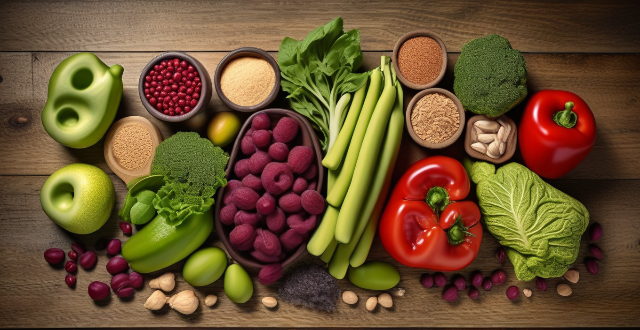Eating a healthy diet is crucial for weight loss and overall health. A balanced meal plan can increase satiety, improve nutrient intake, reduce cravings, and enhance digestion. To create a healthy meal plan, focus on whole foods, control portion sizes, choose healthy fats, stay hydrated, and plan ahead. By following these tips, you can achieve your weight loss goals while nourishing your body with essential nutrients.

Can Eating a Healthy Diet Help with Weight Loss?
Eating a healthy diet is an essential component of any weight loss plan. A balanced and nutritious diet can not only help you lose weight but also improve your overall health. In this article, we will discuss how a healthy diet can aid in weight loss and provide some tips for creating a healthy meal plan.
How a Healthy Diet Can Help with Weight Loss
Increased Satiety
Eating a healthy diet rich in fiber, protein, and complex carbohydrates can help you feel fuller for longer periods of time. This increased satiety can reduce your overall calorie intake, leading to weight loss.
Improved Nutrient Intake
A healthy diet ensures that you are getting all the essential nutrients your body needs to function properly. This includes vitamins, minerals, and antioxidants that can boost your metabolism and support weight loss.
Reduced Cravings
When you eat a balanced diet, you are less likely to experience cravings for unhealthy foods. This can help you avoid consuming excess calories and maintain a healthy weight.
Better Digestion
A healthy diet can improve your digestion, which is crucial for weight loss. Good digestion ensures that your body is able to absorb nutrients efficiently and eliminate waste effectively.
Tips for Creating a Healthy Meal Plan
Focus on Whole Foods
Incorporate whole foods such as fruits, vegetables, lean proteins, and whole grains into your meals. These foods are nutrient-dense and can help you feel full while providing your body with the fuel it needs to function properly.
Control Portion Sizes
Pay attention to portion sizes when planning your meals. Eating smaller portions can help you consume fewer calories without sacrificing satisfaction.
Choose Healthy Fats
Incorporate healthy fats such as avocados, nuts, seeds, and olive oil into your diet. These foods can help you feel full and provide important nutrients for optimal health.
Drink Plenty of Water
Staying hydrated is essential for maintaining a healthy metabolism and supporting weight loss. Aim to drink at least eight glasses of water per day.
Plan Ahead
Planning your meals ahead of time can help you make healthier choices and avoid impulsive snacking. Consider prepping meals or snacks on the weekend so you have healthy options readily available throughout the week.
In conclusion, eating a healthy diet can be a powerful tool for achieving and maintaining a healthy weight. By focusing on whole foods, controlling portion sizes, choosing healthy fats, staying hydrated, and planning ahead, you can create a meal plan that supports your weight loss goals while providing your body with the nutrients it needs to thrive.